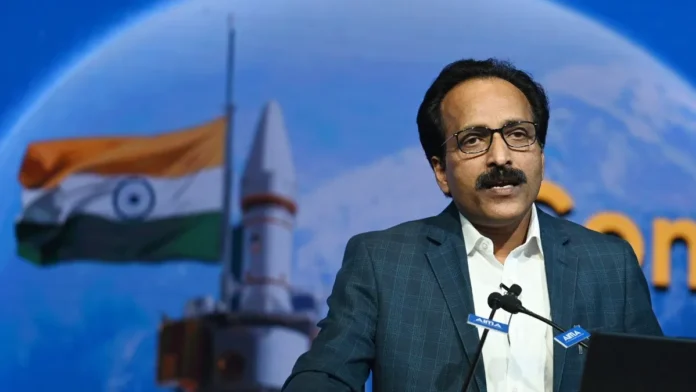A recent study by the Indian Space Research Organisation (ISRO) has revealed that the investments made in the space agency yield significant societal benefits, with a return of ₹2.50 for every rupee spent. ISRO Chairman S. Somanath shared these insights while interacting with students from the Karnataka Residential Educational Institutions Society (KREIS) during an event organized by the Karnataka Government’s Social Welfare and Science and Technology Departments.
ISRO’s Mission: Service Over Supremacy
Speaking at the event, Somanath emphasized that ISRO’s primary mission is to serve the nation rather than competing for dominance in the global space race. “Going to the moon is a costly affair, and we cannot rely solely on government funding. To sustain our efforts, we must create business opportunities in space technology. Otherwise, after achieving certain milestones, the government might ask us to shut down,” he remarked.
Somanath highlighted ISRO’s broader contributions beyond space exploration, citing its pivotal role in everyday life. One such example is the organization’s advisory service for fishermen, which uses data from Oceansat to pinpoint optimal fishing zones. “This advisory not only helps fishermen secure better yields but also significantly reduces diesel consumption for their boats,” he explained, showcasing how ISRO’s technological advancements directly benefit ordinary citizens.

Lessons from Failures: Perseverance in Space Research
Reflecting on his personal journey, Somanath spoke about the invaluable lessons he learned from setbacks. He recounted his early experience with the Polar Satellite Launch Vehicle (PSLV) in the 1990s, which initially failed due to an altitude control issue. “The failure taught us the importance of perseverance. In just 10 months, we rectified the problem and achieved a successful launch,” he said.
Somanath also shared the story of the Launch Vehicle Mark-3 (LVM3), for which he prepared a project report and design in 2005. Despite delays, the project became a reality 12 years later, underlining the importance of patience and unwavering faith. “Failures are stepping stones to success,” he told the students, encouraging them to persist in the face of challenges.
The Role of Teachers in Shaping Lives
Answering a question about his inspirations, Somanath credited his teachers for their profound influence on his life. He fondly remembered his physics teacher, Rajappa, and mathematics teacher, Paul, for instilling a solid foundation in their subjects. He also paid tribute to his late Class X teacher, Bhagirathiamma, who introduced him to the idea of joining IIT and believed in his potential to become an engineer. “The only way someone can achieve greatness is when the teacher is great,” he added.
/newsdrum-in/media/media_files/NfW4ZfdUIVsgOzDyuiKd.jpg)
Celebrating Space Technology and Historical Contributions
The event, attended by over two lakh students and teachers either in person or via Zoom, served as a platform to explore space technology and its career opportunities. Several organizations, including ISRO, the Indian Institute of Astrophysics, and BSNL, set up informative stalls.
The program also included the launch of a live rocket by the Himalayan Space Lab and the inauguration of HAM radio base stations by Karnataka’s Social Welfare Minister, H. C. Mahadevappa. In his address, Mahadevappa celebrated India’s diversity as a source of strength and progress. He acknowledged the contributions of historical figures like Tipu Sultan, who pioneered early rocket technology, and Dr. A. P. J. Abdul Kalam, renowned for his leadership in India’s space programs.
Meanwhile, Science and Technology Minister N. S. Boseraju distributed telescopes to two residential schools as part of an ambitious project aimed at equipping 833 high school students with telescopes in its first phase. The initiative seeks to spark an interest in astronomy and inspire the next generation of scientists.
Building Ecosystems for Space Innovation
Somanath stressed the importance of creating an ecosystem conducive to space innovation and business opportunities. This vision aligns with ISRO’s larger goals of sustaining its projects and expanding its impact. With its focus on developing cutting-edge technology and fostering public-private collaborations, ISRO continues to push boundaries while ensuring tangible benefits for society.

